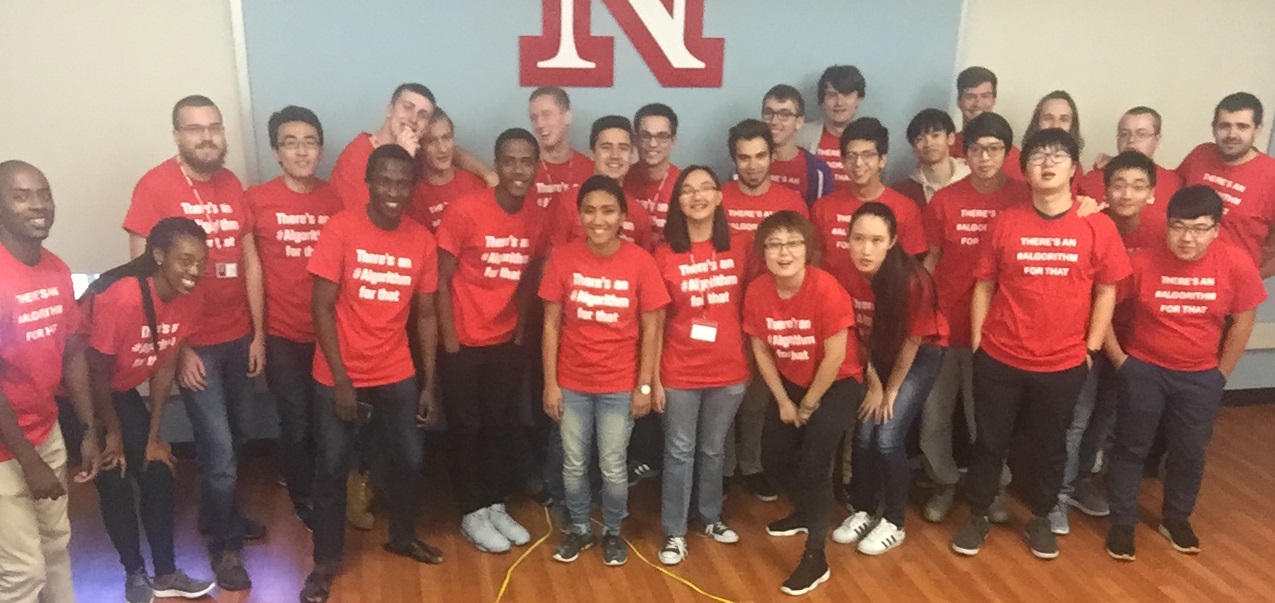
In November, teams of undergraduates at the University of Nebraska-Lincoln competed in an intense two-day event to discover meaning from the Genomes To Fields (G2F) project hosted by Data Commons.
The data, which consisted of hybrid and inbred agronomic and performance traits and inbred genotypic data is part of an open source umbrella initiative to develop approaches to understand the functions of corn genes and specific alleles across environments.
(http://datacommons.cyverse.org/browse/iplant/home/shared/commons_repo/curated/Carolyn_Lawrence_Dill_G2F_Mar_2017)
"The goal of the competition was to get students to collaborate and compete on a data analysis question that is likely beyond the scope of what they see in their classes. The judging was based not only on the computational and the analytical skills of the competitors, but also how well they communicate their results in a short amount of time," explains Jennifer Clarke, Director of the Quantitative Life Sciences Initiative.
A total of seven teams with members from Computer Science & Engineering, Sociology, Actuarial Science, Mathematics, Biochemistry and Business Analytics competed with top honors going to team "I love It When You Call Me Big Data". Teams "Bilal" and "Data Dumpers" took second and third.
View the highlights here: https://mediahub.unl.edu/media/8732
Senior Computer Science major Luis Ramirez from the Data Dumpters took his team's results to the next level with a project for his Bioninformatics class.
"I decided to expand on the findings from Datapalooza. Our conclusion from the event was that farmers should plant a different crop after harvesting corn, so that they can maximize their annual revenue and overall yield. After finding that the replication A protein that is present in corn (found from tracing back the allele pedigrees found in the corn dataset) is present in several organisms and analyzing four candidates: wheat, rice, sorghum, and asparagus, results showed winter wheat offered the best outcomes."
The event was hosted by UNL's Quantitative Life Sciences Initiative, Holland Computing Center and the Department of Statistics.